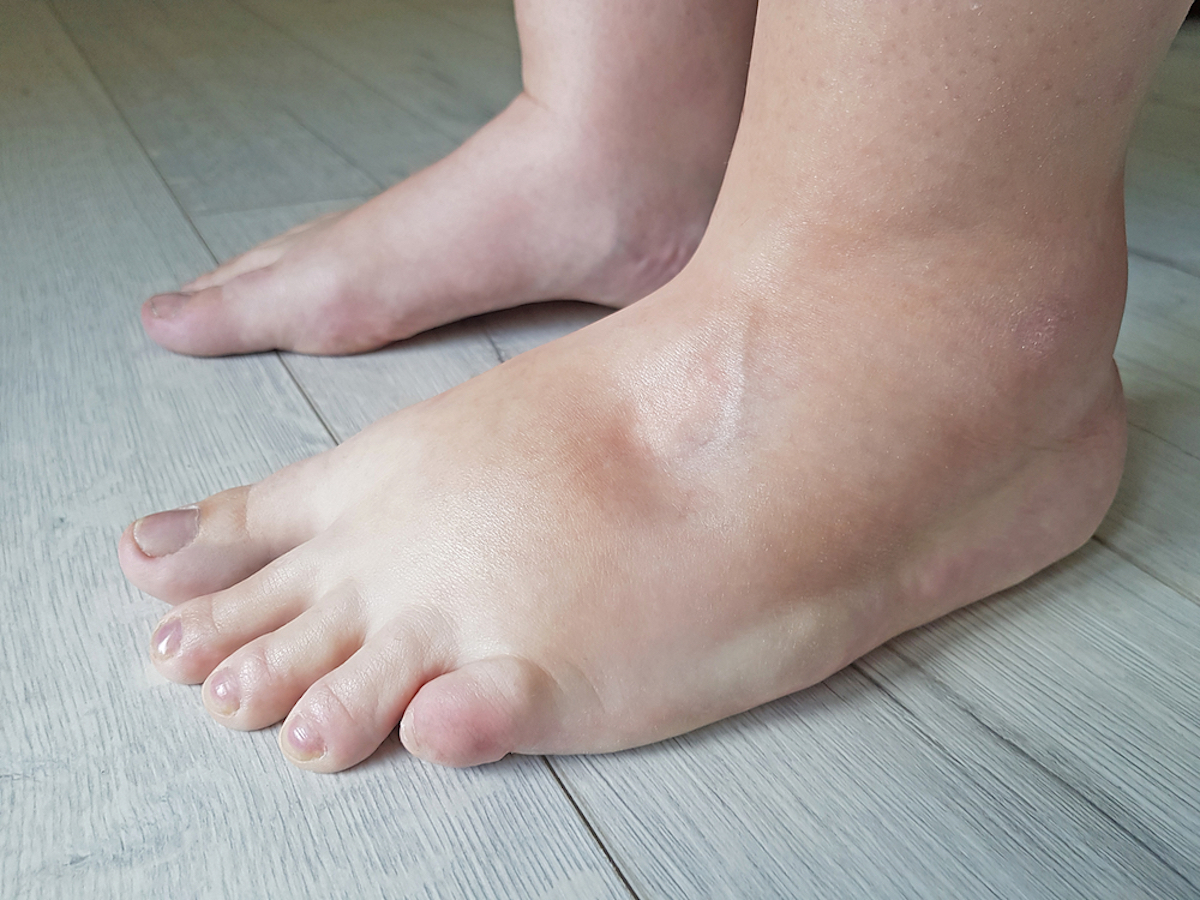Edema is the result of fluid build-up in certain tissues – particularly in the skin – of your body. You can also know it as Oedema. These swellings or puffiness can happen in all parts of the body, but the hands, feet, legs, and ankles are the most commonly affected areas. It may not sound like a serious problem, but nothing could be further from the truth. In fact, it may indicate a serious underlying health problem. Think of cardiovascular diseases, blocked veins, diabetes, or serious kidney or liver problems. That’s why it’s very important to educate yourself about this health problem and recognize the right symptoms.

Types of Edema
Edema is the big umbrella term for different types of swelling in the body. Each type of swelling has its own name, and its own cause and dangers. Common forms are:
- Peripheral edema: affects the feet, ankles, legs, hands, and arms.
- Pulmonary edema: affects the lungs.
- Cerebral edema: affects the brain.
- Macular edema: affects the macula (part of the eyes).
- Pitting edema: a special form of peripheral edema, that leaves an indent or pit in the skin when pressure is applied to it.
- Periorbital edema: affects the eyes and the surrounding skin.
- Lymphedema: affects the lymph notes.
Causes of Edema
Just as edema occurs in different parts of the body, it also has different causes. These causes can be divided into two different categories, mild and (very) alarming cases. The most common causes – mild and alarming – are:
- Pregnancy
- Diabetes
- Diet
- Medication
- Heart failure
- Thyroid problems
- Kidney problems
- Liver diseases
- Allergies
- Extremity problems, like varicose veins, tumors, growths, cysts, and blood clots
- (Sun)burns
- Menopause
- High altitudes
- (Pre)menstruation & birth control
- Infection/inflammation
- Immobility
The milder cases of edema are, for example, when you sit too long in the same position, eat too much salt, are pregnant, or have (pre)menstrual symptoms. Often mild cases go away on their own or change certain lifestyle choices, like eating less salt or moving more, but in case the swelling or puffiness does not disappear, it is important to contact your professional healthcare provider and understand want the possible cause is. Chances are that your edema is a symptom of a much worse problem, like untreated diabetes or organ damage. Continue reading on the next page and find out what are typical symptoms are and what kind of treatment options there are.

